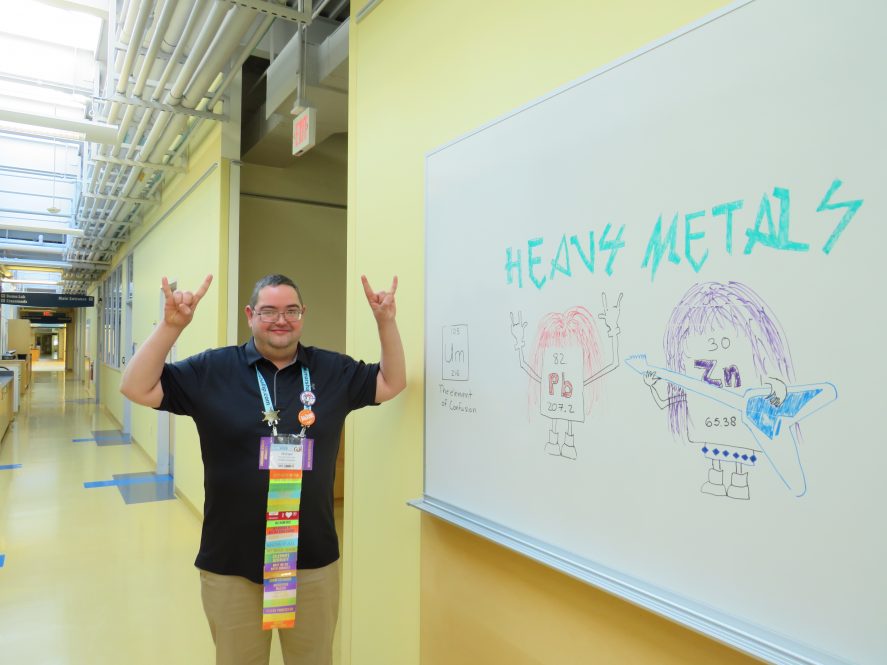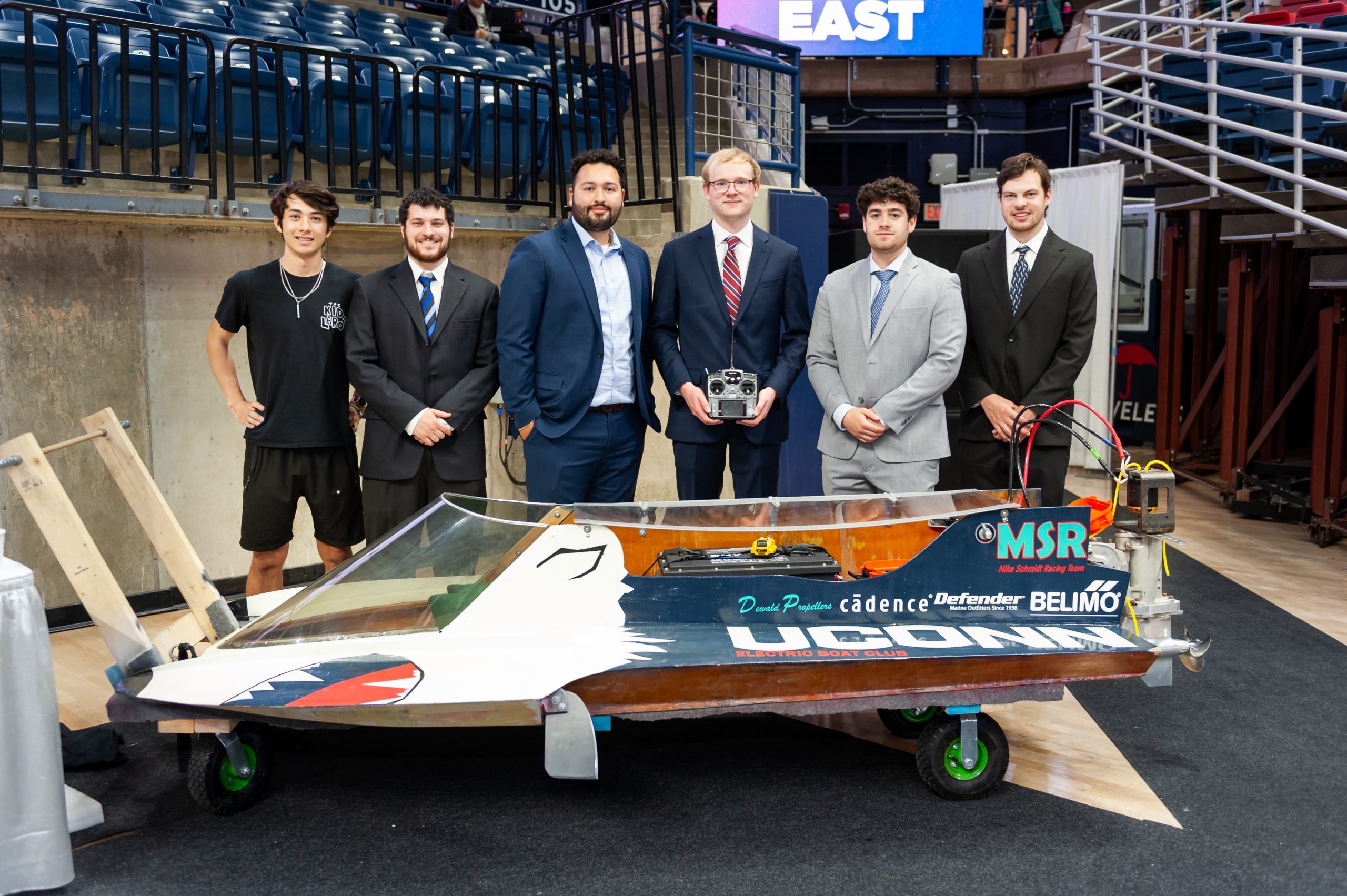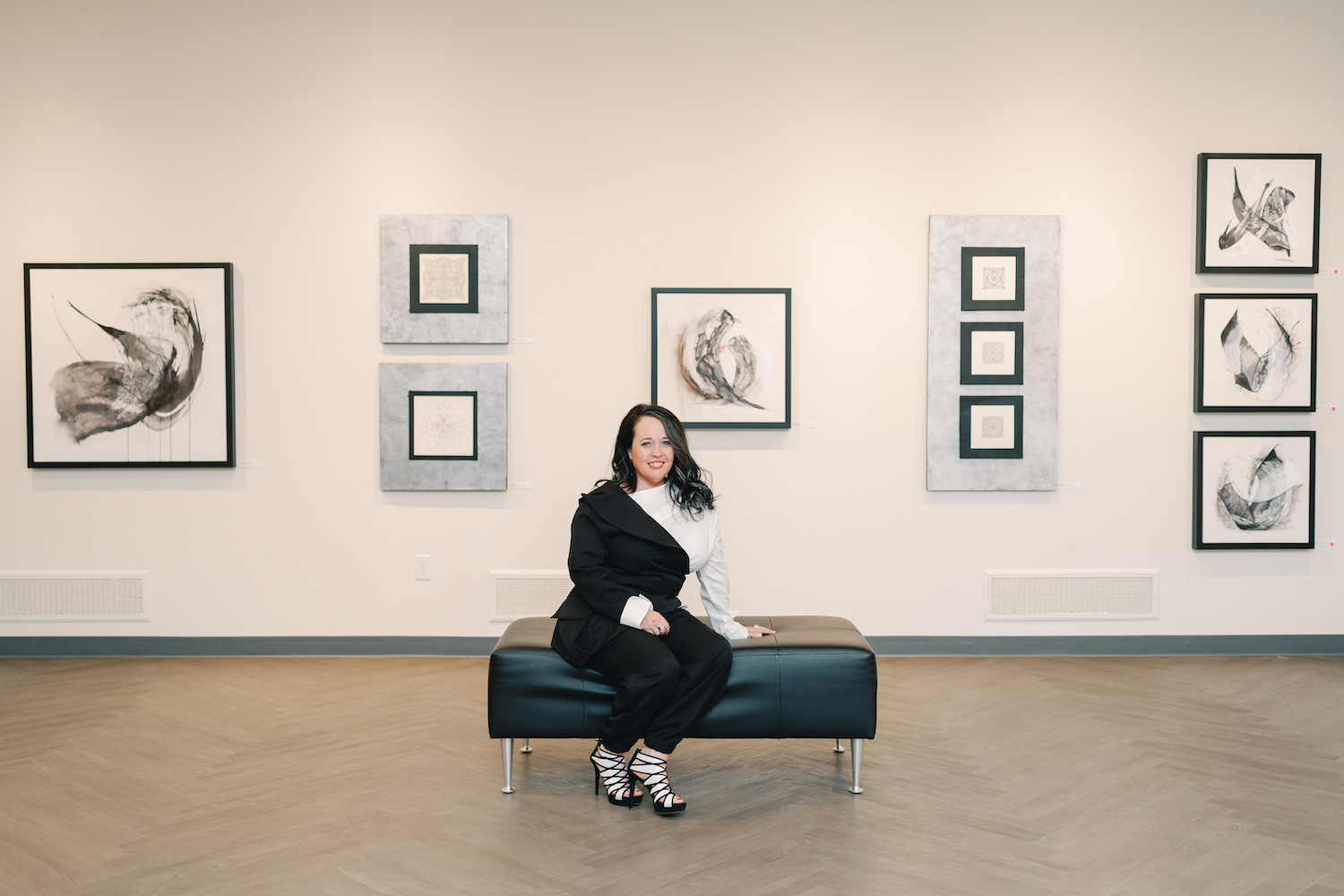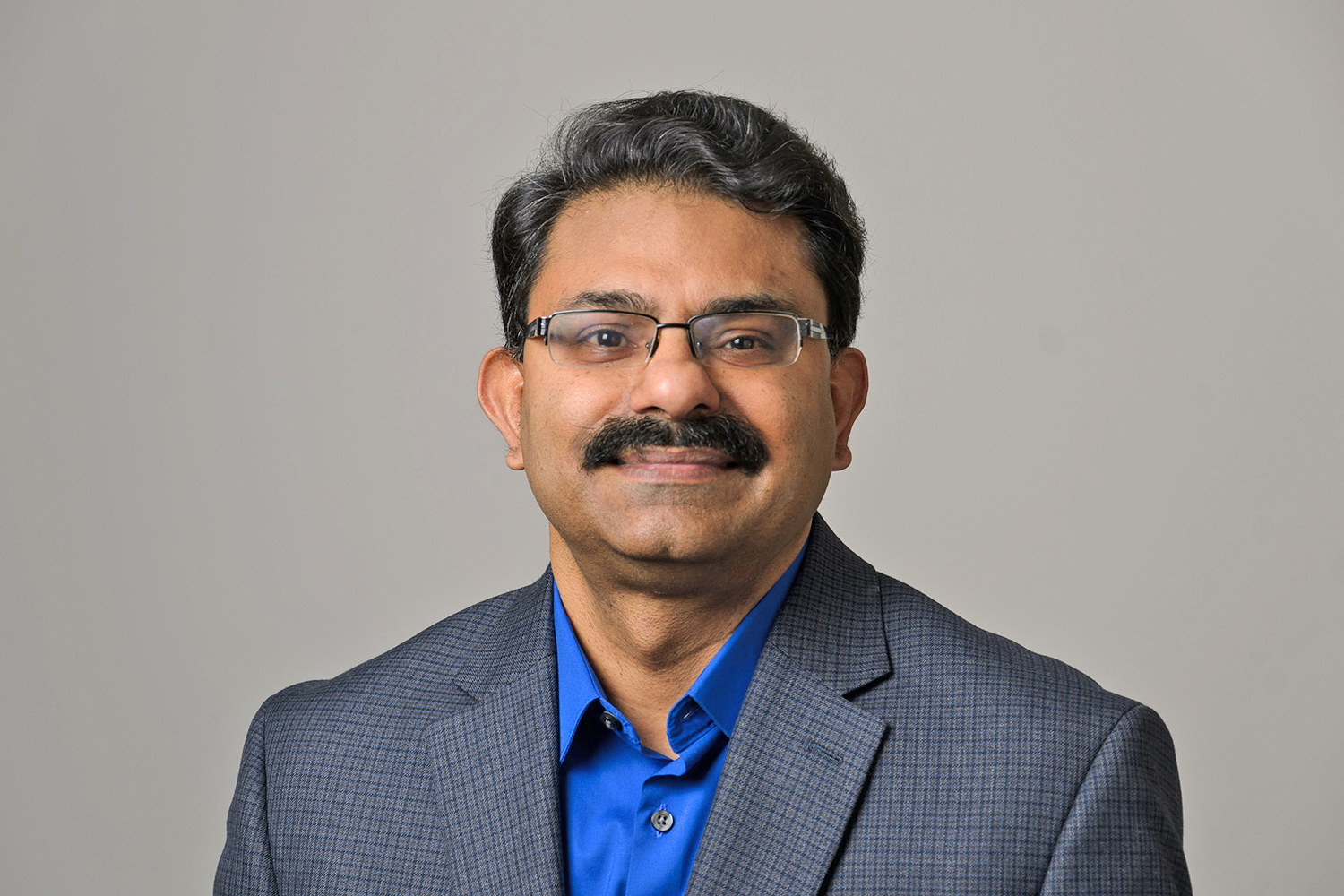Every so often, a person arrives in the technology commercialization field with the power to shift the industry to new levels, the compassion and tenacity to mentor fellow scientists, and the ability to recognize why bringing diversity to this growing sector is an urgent matter.
That innovator is UConn’s own Michael Invernale, a senior licensing manager in Technology Commercialization Services (TCS). Invernale was recently honored as one of only three university staff in the U.S. selected for the prestigious Howard Bremer Scholarship, sponsored by the Association of University Technology Managers (AUTM). They will be flying to San Diego in February for a special awards ceremony at AUTM’s annual conference.
The scholarship supports future generations of technology transfer professionals who demonstrate exemplary levels of creativity and innovation. Invernale is the third TCS staff member to win this scholarship. Venture director Vivek Ramakrishnan won the award in 2007, and senior director of licensing Amit Kumar won in 2011.
“During the course of my 30-year career, I have had the pleasure of working with many people in technology transfer, but Michael is one individual I have worked with who uniquely stands out,” says Lisa Mueller, chair of AUTM’S equity, diversity, and inclusion committee (EDI) and host of the AUTM on the air podcast. “From the outset, what impressed me about Michael was his passion and dedication to EDI issues, and his desire to make a difference and impact.”
Invernale, who has authored more than 18 publications and holds four patents, has tasted both failure and success throughout the course of their esteemed career in science and business.
Although their first startup ultimately didn’t make it, they believe the lessons they learned have made them a better entrepreneur.
Throughout their career, they’ve also realized “every single perspective is valuable, and everybody’s brain works differently,” which is an asset.
They believe diversifying technology commercialization isn’t only important for equity, but for the economic viability of potentially life changing startup inventions.
“The molecules don’t care whether you’re black or white or a woman or anything, right,” Invernale says. “You’re solving problems now that are so complex and across so many different disciplines.”
For Invernale, two patents they invented in graduate school came from “shower thoughts,” a phrase often used to describe a person who suddenly thinks of a profound idea.
“Your first five thoughts on how to solve this problem may be different than mine, but there is no such thing as a bad idea,” says Invernale. They often share this wisdom with fellow scientist- turned entrepreneurs who sometimes lack business acumen, which can be especially complex in licensing technology.
Abhijit Banerjee, associate vice president for Technology Commercialization Services at UConn, has known Invernale for several years.
Banerjee admires Invernale’s commitment to advancing equity and diversity. He sees Invernale as “a rare breed of person” who serves their community and profession with equal determination.
“One of the most notable aspects of Dr. Invernale’ s career is their commitment to mentorship and education. Their mentorship has not only helped shape the careers of many individuals, but has also contributed to the overall growth and development of the academic technology transfer community,” Banerjee noted in his recommendation letter. “They serve at UConn as the leader of the Queer UConn Employees (QUE) organization, which strives to mentor and serve as role models, both professionally and socially.”
Right now, one of Invernale’s favorite projects involves an invention of a software algorithm used for early breast cancer detection.
“I mean, everybody knows MIT and Harvard. All those people have been around forever. But the Wall Street Journal had UConn ranked as number nine for public universities and we’re top 25,” Invernale says with a proud smile.



